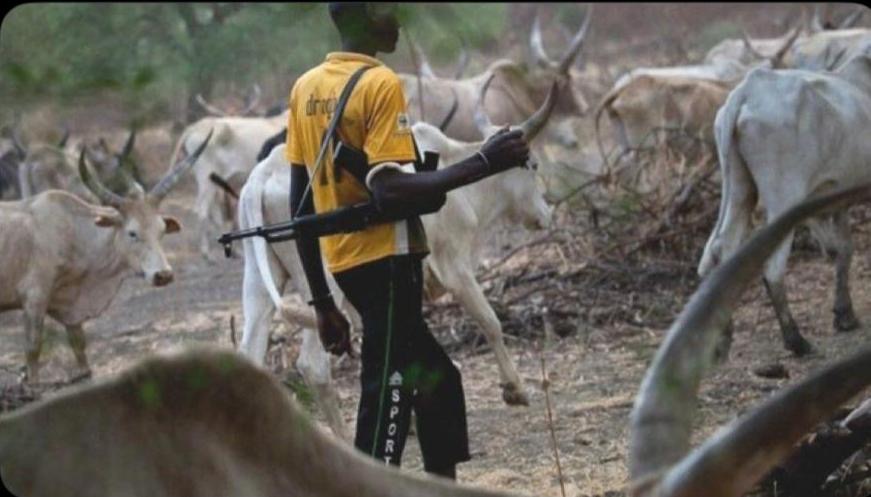Death Toll Rises to 72 in Benue Communities Herdsmen Attack

The death toll from the recent spate of attacks on communities in Benue State, by suspected armed herders has tragically risen to 72, officials confirmed on Sunday.
The violent assaults, which have rocked the state over the past week, have left a trail of devastation, with numerous residents killed, properties destroyed, and thousands displaced.
The attacks, which began in the early hours of last week, targeted several villages across Ukum and Logo local government areas. Local authorities report that these areas, often regarded as conflict hotspots due to their proximity to the grazing routes of herders, have borne the brunt of the violence.
Governor Hyacinth Alia, who expressed his deep concern over the escalating violence, confirmed the latest death toll during a press briefing.
“We have lost 72 innocent lives in this senseless attack. These people were killed in cold blood. Our people are under siege,” he said, visibly shaken. The governor also lamented the increasing frequency and brutality of the attacks, calling for immediate federal intervention to restore peace and security to the state.
The attacks have escalated a long-standing conflict between farmers and nomadic herders over land, water, and grazing rights. However, in recent years, the conflict has intensified, particularly in the Middle Belt region of Nigeria, with Benue at the epicenter. As herders move their cattle in search of grazing land, they often clash with local farmers, resulting in fatalities, destruction of farmlands, and displacement of communities.
Benue State, with its rich agricultural land, has long been a flashpoint for these clashes. The state’s strategic location along the Benue River, which supports farming and fishing activities, has made it an important area for both farmers and herders.
However, climate change and the increasing movement of herders across the region have led to growing tensions and deadly conflicts.
In the recent attack, armed assailants believed to be herders stormed multiple villages in the early morning hours, killing men, women, and children. Local sources report that some victims were shot at point-blank range while others were hacked to death with machetes. Many houses were set on fire, and crops were destroyed in the process.
The violence has triggered a massive displacement crisis, with thousands of people fleeing their homes in fear of further attacks. Many have sought refuge in neighboring towns and villages, while others have fled to nearby forests.
The displaced victims are in urgent need of food, shelter, and medical care. Humanitarian organizations have called for immediate assistance to address the needs of the affected population.
Local hospitals have been overwhelmed by the influx of casualties, with many victims suffering from gunshot wounds and other life-threatening injuries. Several of the injured have been transported to the state capital, Makurdi, where they are receiving treatment.
In addition to the immediate humanitarian needs, the long-term economic impact of the violence is expected to be severe. Benue, often referred to as the “food basket” of Nigeria, relies heavily on agriculture, and the destruction of crops and livestock threatens the livelihoods of countless farmers. The crisis has sparked fears of food insecurity, not only within the state but also in the wider region.
Governor Calls for Federal Intervention
Governor Hyacinth Alia has called for increased federal intervention, urging the Nigerian government to deploy additional security forces to restore order in the state. He emphasized that the scale of the attacks requires a more robust response, including the establishment of a special security task force to protect civilians from further harm.
“The federal government must step in urgently to end this senseless violence. We need more boots on the ground to ensure the safety of our people,” Governor Alia said. “Our communities are being decimated, and we cannot continue to live in fear.”
The governor also vowed to work closely with local law enforcement agencies and traditional leaders to address the root causes of the conflict. He pledged to engage in dialogue with representatives of herders to find a lasting solution that would allow both farmers and herders to coexist peacefully.
Ongoing Calls for Peace and Stability
Despite the government’s efforts, peace remains elusive in the region, as tensions continue to mount. Human rights groups have called for greater accountability for the perpetrators of violence and an end to the culture of impunity that has allowed such attacks to persist for years.
The situation has drawn international attention, with various foreign embassies and organizations calling for an end to the violence and offering support for the victims. Humanitarian groups, including the International Red Cross, have pledged to provide aid to those displaced by the attacks, and local volunteers have also mobilized to assist in relief efforts.
The Nigerian military and police forces have made some arrests in connection with the attacks, but the true identity and motivations of the assailants remain unclear. Some reports suggest that the attackers may have been armed with sophisticated weapons, further complicating efforts to bring them to justice.
A National Crisis
The attacks in Benue are part of a broader national crisis in Nigeria, where herder-farmer conflicts have claimed thousands of lives in recent years. The Nigerian government has struggled to contain the violence, with critics accusing it of being slow to respond to the mounting crisis. The conflict has now become a key issue in the country’s political discourse, with many urging for a more effective national policy on conflict resolution and the protection of civilian life.
The Benue attacks come at a time of growing frustration with the government’s handling of security challenges, which have also included Boko Haram insurgency in the northeast and banditry in the northwest. As the country prepares for the upcoming general elections, security and the protection of citizens have become a focal point of debate among political leaders and the electorate.
Conclusion
As the death toll rises and the humanitarian crisis deepens, the people of Benue State continue to live in fear of further violence. The Nigerian government faces mounting pressure to address the root causes of the conflict and implement measures that will protect communities from future attacks. Without a concerted and sustained effort, the cycle of violence and displacement in the region is unlikely to end anytime soon, leaving innocent civilians to bear the brunt of a conflict that shows no signs of abating.









